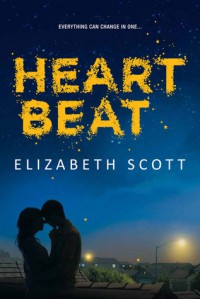Word Revel
Book blogger, recent Sociology grad in her twenties. Stares at labels when no books are in sight. Disproportionately reads YA. This is a companion blog to http://wordrevel.com.
Heartbeat
 Actual rating: 3.5 stars
Actual rating: 3.5 starsHeartbeat was a relatively good book for me, although I didn't think it was exceptional. No matter how much I tried, I couldn't connect emotionally. For a book such as this, not connecting emotionally feels like a downfall because the whole concept of it is actually very heartbreaking. Instead, I felt rather detached. Maybe because the protagonist, Emma, was such a detestable character. The subject matter and plot however were original, which is why my interest in the book itself didn't waver all too much.
Emma was so self-absorbed and so filled with self-pity, I felt a strong urge to shake her for at least half of the book. But I did understand her to some degree. Through an inexplicable feat, she managed to make sense as the world's most spoilt brat on earth. I could see why she was so upset but she was so self-involveded, I found it difficult to care much about her.
Still, the issue about life and death definitely got me thinking. While I disagreed completely with Emma's assessment of the whole situation, seeing her brain-dead mother couldn't have been easy in any sense of the word. It's natural that she was overcome with such an exceeding grief. Yet taking her mother off life support wouldn't have been any easier a decision. That's the core of Heartbeat that made me read on—the moral dilemma of sustaining a life.
Moral ambiguity is always difficult to grapple with, especially when it causes such great emotional distress for everyone involved. Weighing the costs of particular choices can't be measured in absolute terms, so the explorations of life and death, love and hate, were extremely difficult in this novel. It's stories like these that make me appreciate fiction more because it allows us to think about our own lives and reflect on who we are and what we believe in.
This review is also available on dudettereads.com.
Currently reading

A Corner of White

Post-TV: Piracy, Cord-Cutting and the Future of Television

A Court of Thorns and Roses

Girls, Texts, Cultures